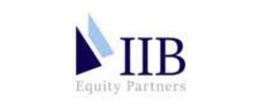אתה בטח חושב שאינך אוחז בדעה קדומה ביחס לקבוצה כלשהי, אך מרבית הסיכויים כי הנך. לא, איני מתכוון לכך שאתה מפלה על רקע מין, גזע או דת, אלא על היותך מוטה בהשקעותיך.
ייתכן ושמעת על שלושת הכללים בנדל"ן: מיקום, מיקום, מיקום. באשר להשקעות החוקים הינם: ביזור, ביזור, ביזור. הזכרתי ביזור? המשקיעים הטובים ביותר נוטים לבזר את השקעותיהם בין סוגי נכסים שונים (מניות, אג"ח, נדל"ן וכו'), מגזרים שונים (היי-טק, כימיקלים, בנקים וכו') וגאוגרפיות שונות. לרב, תיקים מבוזרים הנם בעלי תשואות סולידיות וסיכון נמוך יותר מאשר תיקים שאינם מבוזרים. אף-על-פי-כן, רוב האנשים אינם מבזרים את תיק ההשקעות שלהם כראוי והם "מוטים". ארחיב להלן על הטיה זו.
הטיה נכסית – ישנו כלל אצבע ישן הגורס, כי גיל המשקיע אמור לייצג את האחוז שיש על המשקיע להשקיע באג"ח, כאשר היתרה מוקצית למניות. לדוגמא, תחת קו מנחה זה, אדם בן 30 צריך להשקיע 30% באג"ח ו- 70% במניות, אדם בן 50 צריך להשקיע 50% באג"ח ו- 50% במניות ואדם בן 70 צריך להשקיע 70% באג"ח ו- 30% במניות. הרעיון העומד מאחורי כלל זה הינו, כי מאחר ומניות הנן בעלות סיכון גבוה יותר מאשר אג"ח, משקיעים צריכים להפחית את חשיפתם למניות ככל שהם מתבגרים. עם זאת, לדעתי, כלל זה אינו רלבנטי עוד, אם היה בכלל רלבנטי בעבר. עם התשואות הנמוכות הקיימות כיום באג"ח ושיעורי הריבית הנמוכים על חשבונות בבנקים, משקיעים בדר"כ מפסידים כסף על השקעותיהם, שכן האינפלציה גבוהה יותר מהתשואות שהם מקבלים. בעוד שהשקעה במניות כרוכה בסיכון גבוה יותר, היא גם בדר"כ בעלת פוטנציאל גבוה יותר לקבלת תשואות. עם העלייה בתוחלת החיים למשקיעים יש יותר זמן להחזיר את ההפסדים שצברו.
הטיה מגזרית – משקיעים רבים מושקעים יתר על המידה במגזר מסוים. לדוגמא, אני מכיר מספר משקיעים שכל כספם הושקע במניות של חברות טכנולוגיה בטרם קריסת הסקטור בתחילת שנות ה- 2000. משקיעים אלו הפסידו חלק נכבד מכספם, וזה לקח יותר מ – 15 שנים לאחר-מכן למדדי הטכנולוגיה הראשיים לחזור לשיאים הקודמים. לעומתם, מדדי המניות הכלליים, כגון ה- S&P 500, גבוהים בכמעט 40% מעל השיא של שנת 2000. אם משקיעים אלה היו מבזרים את תיק ההשקעות שלהם במגזרים שונים ולא מושקעים במגזר הטכנולוגיה בלבד, מצבם כיום היה שונה לחלוטין.
הטיה גאוגרפית – קיימת נטייה בקרב אנשים להשקיע את מרבית נכסיהם בארץ המוצא שלהם, נטייה הידועה בכינויה "הטיית ארץ המוצא". מדובר בנושא גלובלי, שכן כל המשקיעים ברחבי העולם "שבויים" בהטיה זו. מחקר שנערך ע"י קבוצת Vanguard מראה, כי ארה"ב מהווה כ- 49% משווי שוק המניות העולמי, עם זאת משקיעים אמריקאים בקרנות נאמנות החזיקו רק 27% מהשקעותיהם במניות בקרנות שאינן אמריקאיות. האמור נכון גם בישראל. אם חיית בישראל מספר שנים או יותר, סביר להניח שיש לך הטיית ארץ מוצא ביחס לישראל. הסיבות לכך הינן:
– אם בבעלותך קרן פנסיה, ביטוח מנהלים, קופת גמל או קרן השתלמות, סביר להניח, כי רובם מושקעים במניות או אג"ח ישראליים.
– אם בבעלותך בית בישראל, הוא לרב מהווה שיעור גבוה משווי נכסייך, נטו. מחירי הדירות בישראל קשורים למשק הישראלי ונקובים בשקלים.
– אם אתה עובד, אתה מקבל משכורת שגם היא קשורה למשק הישראלי ולרב נקובה בשקלים. התזרים החופשי העתידי המתקבל ממשכורתך הינו נכס.
אי לכך, סביר להניח ששווי נכסייך, נטו בעל משקל יתר בישראל.
אתה בטח אומר לעצמך: "אני לא וורן באפט, כיצד אני יכול לבזר?" ולמעשה ניתן לבצע זאת ביתר קלות, דרך שימוש בקרנות תעודות סל (Exchange Traded Funds – ETF) וקרנות נאמנות. כלי השקעה אלה, מאפשרים לבזר את תיק ההשקעות הן של אנשים אמידים והן של כאלה שאינם (אני בן אדם אופטימי מטבעי ולכן אני נוטה לכנות קבוצה זו כ"אמידים בעתיד"). ההשקעה בקרנות תעודות סל ובקרנות נאמנות בונה לך "תיק השקעות מידי" ובאה בכל מיני צורות של השקעה: קרנות שמשקיעות בשוק המניות בארה"ב, בשווקי מניות מחוץ לארה"ב, בשווקים מתפתחים, באג"ח ארה"ב, באג"ח מחוץ לארה"ב, בנדל"ן וכיו"ב. באמצעות עבודה צמודה עם יועץ השקעות מוסמך יש באפשרותך לבנות תיק השקעות מבוזר, שיסייע לך לעמוד במטרותיך הפיננסיות.
* הכותב הנו מתכנן פיננסי מוסמך (CFP) ב- "The Service תכנון פיננסי (אף. פי) בע"מ" ורו"ח מוסמך (CPA) (ארה"ב).


